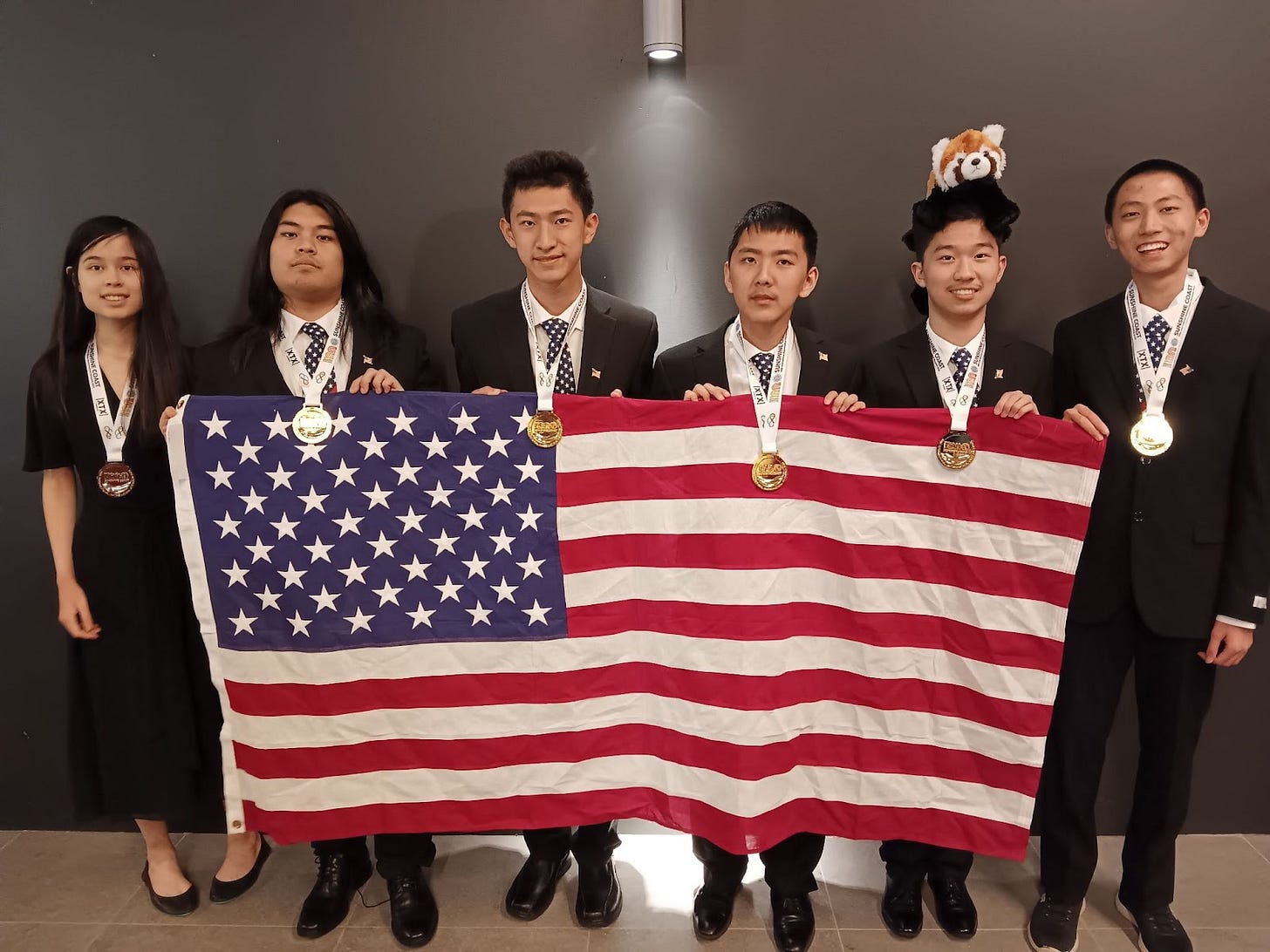#2: Finding Doom and Purpose at the Math Olympics
This is part of Duality, where I try to reconcile the tension I feel about AI—equal parts excitement and unease. Intro here →
⚠️ The Peril
The High-Schoolers Who Just Beat the World's Smartest AI Models
The Wall Street Journal
In heart warming news, 26 students from around the world were able to beat two of the biggest players in AI, OpenAI and Google DeepMind, at the International Mathematic Olympiad (IMO). It's incredibly impressive and a beacon of "humans still got it".
So why am i listing this under Peril?
Because context is everything.
The IMO has become an unofficial benchmark to measure AI's progress in mathematical reasoning. This year marks the first time that AI achieved a gold medal at the competition. Two models, Google DeepMind and OpenAI, both scored 35 out of 42 possible points, solving 5 out of 6 problems perfectly. For comparison, DeepMind scored 28 points last year.
Is one extra problem a big deal? When DeepMind's own senior staff research scientist predicted bronze or silver this year, it is. The Wall Street Journal article called it the AI equivalent of breaking the 4-minute mile.
Exciting news for some, but it's troubling for others.
It's another example of AI systems surpassing expectations and of breakthroughs we don't fully understand. And if we're focusing on performance benchmarks, aren't we losing the thread?
When the majority of headlines are about AI winning gold at the IMO, it can feel like we're reducing a very human achievement - years of preparation, unfathomable effort, and creative and imaginative problem solving - down to just another optimization exercise.
🙌🏽 The Promise

But 26 remarkable students did beat the AI this year and we can and should celebrate that.
And through the cloud of gold medal thresholds being broken, exponential performance improvements, and doom mongering about losing the battle with AI, you read something like this that can reframe everything:
"If I didn’t truly love math, if there wasn’t a thing on this earth so tailored to how I want to experience the world, I don’t think I would’ve gotten far. I feel extremely lucky that there is such a thing, and I found it early enough to make something out of it during my high school years. I think I’m the type of person who could make many things work for me, and in another life, I definitely could’ve been this obsessed with something else, but I’m happy that I’ve found any path at all, and that it felt so right."
- From My last high school math contest, Qiao Zhang
That's from Qiao (Tiger) Zhang, one of the students that beat the AI scores, writing about his final year competing at the IMO.
And this is where education comes in.
We can measure AI progress in points, benchmarks, and medals, but those aren’t the only measures of a successful life. What Qiao describes isn’t about winning a competition; it’s about discovering something that makes you feel alive, that gives you purpose and belonging. That is the heart of education. It’s why we teach, why we nurture curiosity, and why learning will always matter. Machines can achieve, but only humans can find meaning in achievement.
⚙️ How I’m Processing This
A lot of the excitement around AI is about what we can now do: solve problems, break records, even win medals. But Qiao Zhang’s reflection reminds me of why education matters in the first place.
Education isn’t just about achievement or collecting gold medals. It’s about helping people discover the thing that lights them up and makes the world feel “so right.” That sense of belonging, identity, and joy can be a real outcome of learning, especially when passionate teachers open doors for students. I don’t think that kind of connection can be replicated by machines.
I do believe that AI will absolutely shape the future of education. But we will always need humans in the loop because passion is contagious and it never becomes obsolete.





